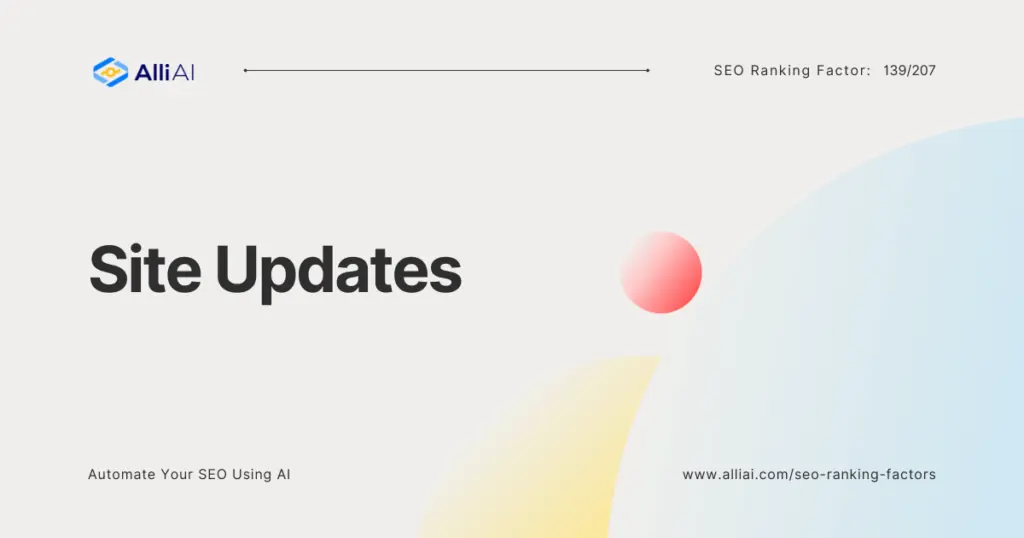Explanation of Site Updates as a Ranking Factor
Imagine visiting your favorite bookstore each month and noticing that the shelves are rearranged with fresh titles, whereas another nearby bookstore rarely changes its stock. Over time, you’d likely prefer the first bookstore for its dynamic selection. This is akin to how search engines view websites. Site updates involve modifying or adding new content, improving site layout, and ensuring the website’s technical health is up to scratch. This could range from publishing new blog articles and updating existing content to refining user interface design.
Why is Site Updates Important in SEO?
Search engines aim to provide users with the most relevant, up-to-date, and quality content. Frequent site updates signal to search engines that the website is active, continually offering fresh content or improving user experience. This not only helps in attracting new visitors but also in retaining existing ones, thereby signaling the site’s relevance and authority to search engines. In essence, regular updates can be a determinant in improving a website’s search rankings.
How Site Updates Affect SEO
– Content Freshness: According to a Google algorithm update known as “Query Deserved Freshness,” websites that regularly update their content can gain a boost in search rankings for relevant queries.
– User Engagement: Websites with updated content tend to have higher user engagement rates, with a 50% increase in user engagement for sites that regularly update their blog content (Source: HubSpot).
– Page Indexation: Frequent site updates lead to more frequent crawling by search engines. This increases the likelihood of your new pages getting indexed quickly.
Linking these stats to the broader picture, it’s clear that site updates significantly influence a site’s SEO performance. Fresh content and regular updates can lead to better search visibility, improved user engagement, and ultimately, higher rankings.
FAQ
How often should I update my website for SEO benefits?
The frequency of updates depends on your industry and the type of content. However, aiming for at least weekly updates is a good practice for most websites. This could include publishing new blog posts, updating existing content for accuracy, or adding user-generated content.
Does updating old content count as a site update?
Yes, updating old content is an effective way to keep your site fresh. This can involve adding new data, revising outdated information, or improving readability. Such updates can breathe new life into older pages, potentially boosting their rankings.
Are all types of site updates considered equal by search engines?
Not all updates carry the same weight. Content updates, particularly those that enhance the quality and relevance of information, are highly valued. Technical updates that improve site speed, mobile-friendliness, and user experience also play a crucial role. However, minor changes, such as fixing typos or altering font colors, may not have a significant impact individually but contribute to the overall site health.
Conclusion
In the digital age, the only constant is change, and this holds true for SEO strategies as well. Site updates stand as a testament to a website’s commitment to quality and relevance, echoing the sentiment that for websites, just like in any business or service, stagnation is the enemy of progress. By embracing the practice of regular site updates, website owners can not only enhance their SEO performance but also provide a better experience for their visitors, ensuring that their site remains a preferred destination in the vast ocean of the internet. Remember, in the realm of SEO, being static is not an option; growth and adaptation through site updates are the keys to ongoing success and visibility.






